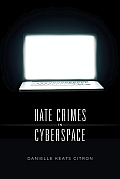"A Squatter’s Republic delivers a riveting history of legal strategizing, identity negotiation, economic transitions, and even some Old West violence. Tamara Venit Shelton assesses the early California squatters’ anti-land monopoly movement, tracing its maturation into a much broader antimonopoly movement linked with national and international thought. She argues that the early anti-land monopoly squatters saw themselves as righteous guards of the classical liberal American dream, but the onset of the Gilded Age would see many who supported the cause eventually warm to some kinds of government-controlled monopoly. The book’s engagement with historiography is brief in the introduction, though the footnotes are thorough. Throughout the work, Shelton interweaves ethnic, political, economic, and cultural histories, presenting an excellent example of history that breaks down the silos of more classical frameworks and moves beyond an analysis of elected leaders debating questions of land and monopoly."
 Also on H-Net are reviews of Barry L. Strayer's Canada's Constitutional Revolution (University of Alberta Press) (here), Megan Bradley's Refugee Repatriation: Justice, Responsibility and Redress (Cambridge University Press) (here), and Sarah Kovner's Occupying Power: Sex Workers and Servicemen in Postwar Japan (Stanford University Press) (here).
Also on H-Net are reviews of Barry L. Strayer's Canada's Constitutional Revolution (University of Alberta Press) (here), Megan Bradley's Refugee Repatriation: Justice, Responsibility and Redress (Cambridge University Press) (here), and Sarah Kovner's Occupying Power: Sex Workers and Servicemen in Postwar Japan (Stanford University Press) (here).New Books in History has an interview with Brian Purnell about his new book, Fighting Jim Crow in the County of Kings: The Congress of Racial Equality in Brooklyn (University Press of Kentucky).
There's also an interview with John Orth about his short story, "Self-Defense,"(14 Green Bag 2D 113) on New Books in Law.
An excerpt from Marc Solomon's Winning Marriage (ForeEdge) is available on Salon.
The Guardian has a review of Jad Adams's Women and the Vote: A World History (Oxford University Press).
"Jad Adams’s new global history of women’s enfranchisement claims to be the “first major post-feminist” treatment of its subject. I don’t know about “first” and “major”, but “post-feminist” is the mot juste. Women and the Vote is “post-feminist” in that while it is largely synthetic, drawing on two decades of feminist scholarship, the political commitments and fierce doctrinal quarrels that animated those works have been left behind. The book is also “post-feminist” in its arguments. Although Adams spends nearly 450 pages on women’s campaigns for the vote across two centuries and the entire globe, his dampening conclusions are, first, that all that activism wasn’t the main force behind enfranchisement, and, second, that women’s votes didn’t make much difference to politics anyway. That second argument, indeed, is brought back to reinforce the first. The female vote didn’t destabilise the political and social order, and once male politicians realised that, they were happy to concede it."
 Thomas Maier's When Lions Roar: Churchills & Kennedys (Crown) is reviewed in The Washington Post.
Thomas Maier's When Lions Roar: Churchills & Kennedys (Crown) is reviewed in The Washington Post.Also in The Post is a review of Frances Larson's Severed: A History of Heads Lost and Found (Liveright).
The New York Times reviews The Georgetown Set: Friends and Rivals in Cold War Washington by Gregg Herken (Knopf).
















